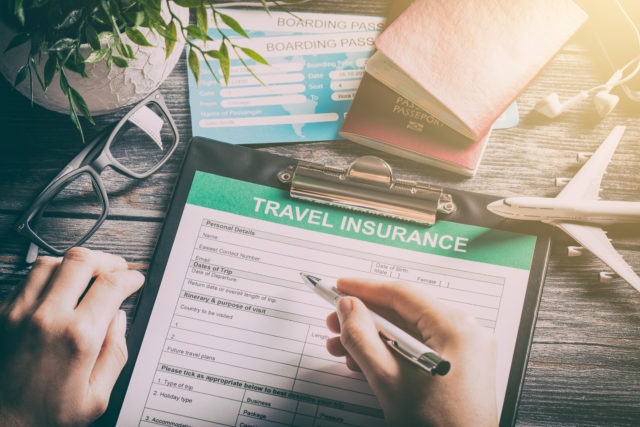Hacks to make sure you choose the correct policy for your trip

All credits: PA
The holiday season is approaching, so your thoughts might be turning to a winter getaway or NY celebration abroad.
But as well as dreaming about all-inclusive beach holidays or jetting off to hit the ski slopes, it's crucial to make sure you're covered for all eventualities - and that means investing in travel insurance.
“Before jetting off on holiday it can be easy to forget about travel insurance, but it should be at the very top of your shopping list,” says Charlie Campbell of the Association of British Insurers (ABI).
“Medical expenses abroad can sometimes run into the tens, if not hundreds of thousands of pounds, so it’s vital that everyone going abroad has sufficient cover in place to cater for all eventualities,” warns Campbell.
SEE ALSO: These are the different types of insurance available in the UAE
If you do intend to buy travel insurance, don’t make the mistake of leaving your purchase until the last minute. Policies usually cover cancellation, so get insured as soon as you book your holiday, in case a natural disaster or a holiday company bankruptcy forces you to abandon your trip.
And when you do start looking for the best policy, don’t fret too much over all the ‘insurance speak’. To make extra-sure, the ABI has compiled a glossary of insurance terms, giving simple explanations of words and phrases used across the insurance and pensions sector.
So before you book, consider these important questions.

1. How comprehensive do you need the cover to be?
Different policies cover different eventualities, and may also have different cover limits (that’s the maximum amount an insurer will pay for a claim) and different levels of excess (the amount you have to pay on a claim before the insurer covers it).
These differences will affect the price you pay, so check to make sure you’re buying a policy that covers everything you need.
2. Will you travel regularly throughout the year?
If you travel two or more times a year, you may want to consider buying a multi-trip policy, which usually covers you for a 12-month period. Be aware though, that a single trip policy may be more cost-effective if you’re an older traveller or have a medical condition, even if you travel multiple times a year.
3. How long are you travelling for?
Most multi-trip policies will have a maximum number of days per trip. If you’re nearing your limit you should be able to speak to your insurer about extending your cover. If you’re going on a gap year, it’s a good idea to look at backpacker travel insurance policies which are designed for travellers who are going away for a longer time and to multiple destinations.

4. Where are you going?
Different policies cover different geographic regions. Policies which include the USA tend to be more expensive due to the higher cost of healthcare. Be aware that your travel insurance is unlikely to cover you for travel to countries against Foreign and Commonwealth Office or World Health Organisation advice.
5. Are you the only one travelling?
Discounts are sometimes available if you purchase travel insurance for a couple, family or group. Having a group policy can also make the claims process more smoothly as it can be handled all in one go.
6. What will you do on holiday?
Many, but not all popular holiday activities are included as standard in travel insurance policies. Check what activities are covered in the one you’re considering.
SEE ALSO: 5 different types of car insurance available in Dubai
You’ll usually need extra levels of cover for high-risk sports like skiing or quad biking, as well as for most cruise travel.

7. Do you have a medical condition?
Travel insurers pay out more on medical expenses than any other type of claim, and it’s crucial that your insurer knows about any pre-existing medical conditions. Most travel insurers now use a series of screening questions to find out about your medical conditions, and you may need the help of your GP if you have conditions that are particularly complex.
If you try to hide important details about your health, you may find you’re not covered when something happens abroad.
- Tags:
- Travel insurance
- Insurance
- Money


























.png?itok=HBSyMDok)





















































































.png?itok=0fOAXkOm)















.png?itok=EH_x0Pha)













